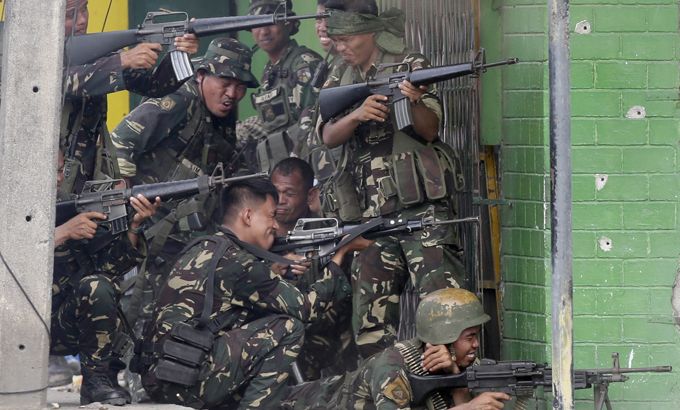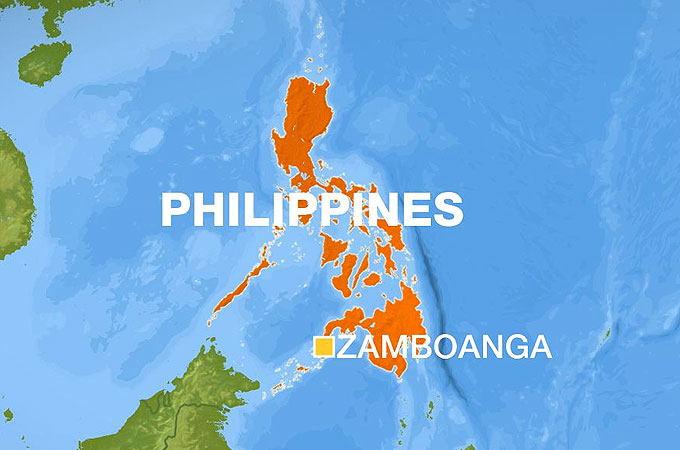Philippine government warns southern rebels
Hostage takers in Zamboanga City told by presidential spokesman to peacefully end standoff or face military action.

The Philippine government has warned Muslim rebels, who have been holding over 100 people hostage in the southern port city of Zamboanga, to end peacefully a four-day standoff “at the soonest possible time”.
Edwin Lacierda, presidential spokesman, said on Thursday that any attempts by other groups to sow trouble would be crushed, citing the army’s defeat of an armed group’s attempt to set a nearby village and wharf on fire.
“While the government is exhausting all avenues for a peaceful resolution to the situation, let it be clear to those defying us that they should not entertain the illusion that the state will hesitate to use its forces,” Lacierda said.
“It is time for you to cooperate to resolve this situation peacefully at the soonest possible time.”
The warning came just hours after the rebels attacked a second town while they continue to hold scores of hostages in Zamboanga City.
Roderick Furigay, vice mayor of Lamitan in Basilan province, told the Associated Press news agency that rebels attacked the town early on Thursday.
 |
Basilan is a boat ride away from Zamboanga, where suspected fighters of the Moro National Liberation Front (MNLF) have been holding scores of residents as hostages since Monday, when government troops repulsed their attempt to erect a rebel flag at city hall.
Troops have surrounded the fighters and their hostages in four coastal villages.
Last month, the MNLF issued new threats to secede by establishing its own republic.
However, its leader, Nur Misuari, has not appeared in public or issued any statement since the standoff in Zamboanga City began.
The MNLF signed a 1996 peace accord with the government, but many of its fighters held on to their weapons and accused officials of reneging on a promise to develop an autonomous region for minority Muslims in the south of the predominantly Catholic Philippines.
The group has said it was being left out in government’s negotiations with another fighter group, the Moro Islamic Liberation Front (MILF), which broke away from the MNLF in the early 1980s.